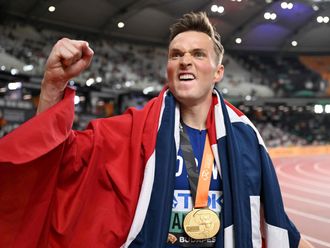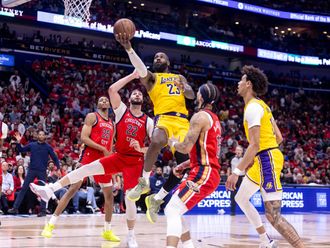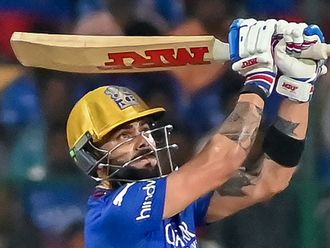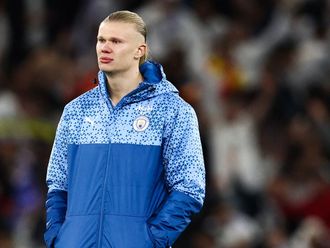Moscow: Women’s sprinting has entered a new era, declared African duo Murielle Ahoure of the Ivory Coast and Nigeria’s Blessing Okagbare after they won the continent’s first ever medals in a women’s world 200 metres final on Friday in Moscow.
Ahoure, 25, took her second silver of the World Athletics Championships, having become the first African woman to win a medal in the world 100 metre final, in a photo finish with Okagbare behind Jamaica’s 100 metre champion Shelly-Ann Fraser-Pryce.
Both of them may train in the US and have American accents — Ahoure has lived in America since she was a child after arriving from the Ivory Coast via a brief stay in France - but they are Africans to the core.
“Tonight has seen a new era launched in women’s sprinting,” said a radiant Ahoure.
“I am so proud to be up here as an African. We are the perfect opponents as Blessing represents English speaking West Africa and I represent French speaking West Africa,” she giggled.
Ahoure, who said earlier in the week her fame is such in the Ivory Coast that she is known as ‘the female Drogba’ after the iconic footballer, has said she wants to act as a role model for budding African athletes.
Ahoure, the daughter of a former chief of staff of the Ivorian army, hopes this will halt the drain of talent to countries that offer them money.
“I think it is sad so many African athletes feel it is necessary to move abroad and run for other countries,” said Ahoure, who has five siblings.
“At the same time I understand that they have to make a living and an athlete’s life is a precarious one. You live with the ever present fear of injury which can end your career.”
Ahoure is unequivocal when asked whether Africa can produce the talent to go on and dominate the women’s sprints just as the Jamaicans have largely done over the past few years.
“Yes,” she said firmly.
However, she accepts that this comes with a large caveat.
“We need investment in infrastructure and training facilities,” she said.
Okagbare, who trains with America’s 100 metre world champion from 2011, Carmelita Jeter, admits that her second medal of the week in what was her third final - she won silver in the long jump and finished out of the medals in the 100 metre — carried more than personal significance.
“It’s an honour to make a bit of history for Africa,” said the 24-year-old.
“I may live in the US but I am a proud African and moments like this are wonderful when I feel I am putting them on the map in athletics.”
Okagbare said she was confident she could go on and keep being a flagbearer for the continent.
“When I won the long jump bronze at the 2008 Olympics I was only 19 and still naive,” she said.
“But as I grew through the years I learnt so much. At first it was difficult to cope with the pressure and what people were saying. But athletes don’t go out to fail and when they do it is really tough for them.
“Now I don’t pay attention to what people say and I don’t worry about what may come in the future.
“I just hope that people will look back and say I gave Africa something to smile about at a world championships.”












